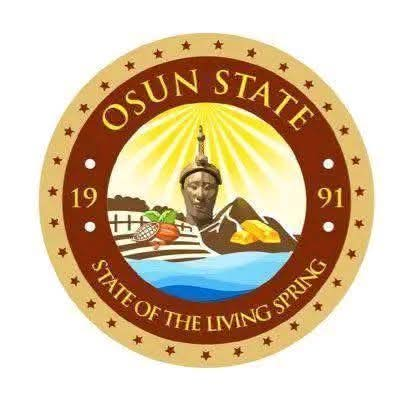In the last few days, there has been ample excitement across Nigeria over a number of new public policies and decisions. Two of such developments stand out. The first is the plan announced by President Bola Ahmed Tinubu to establish a Ministry for Livestock Development while the second is the judgment of the Supreme Court granting financial autonomy to the nation’s 774 Local Government Councils.
Unfortunately, so many people are as usual applauding the reforms on their face value. But this column is convinced that the excitement over either of the two decisions is premature because the full implications that will follow the implementation of the reforms have not been fully assessed. In particular, it is patently naïve to imagine that the pronouncement of the Apex Court will automatically cure all the ills in Nigeria’s 3rd tier of government.
The first sign that the judgment may have produced pyrrhic victory for local government officials and in fact the entire nation is the fact even governors that many thought the decision did not favour are also rejoicing and indeed explaining that they are greatly relieved from the heavy burden of managing local governments. What traps are embedded in the unexpected reaction of governors to what some people see as a judicial landmark decision? Are we really sure that leaving local councils to manage their funds will solve the problem of poor development in Nigeria’s rural areas? If care is not taken, the decision which appears positive may inadvertently create a new set of emperors in the local areas with long convoys of vehicles heralding the arrival of chairmen to events as well as creating a blanket security vote for areas where insecurity would remain the order of the day.
We hear that what initially necessitated the collaboration of states and local governments was the inability of the latter to meet certain huge costs especially the payment of teachers’ salaries. State governments thus reportedly agreed to also make some funds available to local governments which were then paid into an account to be jointly managed by both bodies. Unfortunately, the bigger partner took advantage to determine every expenditure leading to penury of local councils. So, could it be that governors would now stop aiding local councils which now have financial autonomy? Of course, we can trust politicians as they would have since after the judgment designed strategies to make those who support local autonomy to think twice.
Interestingly, those who are rejoicing before understanding where we are heading to are even asking the Independent National Electoral Commission INEC to immediately take over the conduct of local elections from State Independent Electoral Commission SIEC. About a month ago, this column had argued that INEC was not well positioned to perform better than SIEC because both organizations suffer from the same ailment which is lack of independence. We don’t expect anyone to listen to us until the ruling party at the centre starts to ‘sweep’ local council polls in states where they have no governors. It is at that point that agitators for INEC to conduct local elections will understand what politicians mean when they talk of federal power in the states.
For us, asking INEC to conduct local elections means that we are taking political autonomy away from the local councils that have just been financially empowered. Why are we now seeking to federalise a local function instead of positioning our societal institutions into embracing best practices in the conduct of elections? Whether INEC or SIEC, Nigeria is overdue for e-voting. It is time to hold seamless elections, keep to the proposed guidelines and use appropriate technologies that nullify electoral malpractices. Those who insist that we are not ripe for e-voting are yet to tell us why we are ripe for e-banking, e-passport, e-NIN etc. They must also explain why poor elections must remain our culture.
A second policy that was well received during the week was the plan by government to establish a Ministry for Livestock Development. If Nigeria must aggressively tackle hunger and hardship, no one can argue against the imperative of the plan especially now that our nation is facing imminent food crisis. Only last week, former Senate President Ahmad Lawan observed that the cost of food items in Nigeria had increased by more than 300%, warning that ‘protest will occur if all arms of govt don’t collaborate to reduce food prices and electricity tariffs. ’Tinubu’s livestock development initiative is thus in order as it will reportedly help government to focus on improving the protein intake of our people. It is also expected to generate revenue for government.
However, this second leg of the argument on enterprise and profit seems to suggest that the vehicle for achieving the noble objective is not through the instrumentality of a ministry which functions essentially as a bureaucracy. We need not look beyond Nigeria to get copious examples of how government businesses have never worked in the country. Once the ministry is created, a new Minister will assume duties with a handful of personal and special assistants who render the staff of the ministry idle. The latter are in turn forced to serve as saboteurs to the attainment of the goals of the Ministry.
Considering that it is an acclaimed fact that an inherent feature of bureaucracy is undue delays in project implementation, a country in a hurry to solve food crisis has no business bringing a ministry into it. In other words, Ministries cannot be used as reform agents for speedy execution of policies. It appears better to let them perform administrative functions while relying on technical ad hoc bodies such as the Presidential Food System Coordination Unit PFSCU which has governors, ministers and representatives of development partners and which was recently inaugurated to face urgent tasks.
Even at that, it is difficult to see how the assurances given by Vice President Shettima that the presence of bodies like the PFSCU will not usurp the functions of the existing Ministry of Agriculture. According to official records, the Ministry’s core mandate is to ensure food security in crop, livestock and fisheries, stimulate agricultural employment and services and promote the production and supply of raw materials to agro-allied industries. For this reason, the ministry has a multiplicity of ministerial departments and agencies. Among them are the Nigerian Agricultural Insurance Corporation NAIC and three extension services – two in Zaria and one in Ibadan.
It is unfortunate that Nigeria continues to put too many cooks in a kitchen to prepare same meal. At a point, the need to set up a panel such as the famous Stephen Oronsaye panel to streamline them becomes obvious. We have been studying the Oronsaye report for more than a decade while continuing to create new bodies like the proposed Ministry of Livestock Development. The other day, a legislator was applauded for proposing a bill to establish the Federal University of Technology in Lagos. Whereas most Nigerians expect the House of Representatives to make an affirmative law for 74 of its existing 360 seats to be reserved for women, our legislators are trying to increase the numerical strength of an already money-guzzling and unwieldy House by as many as 74 extra seats for women.
Our leaders should put some halt to all these grandiose policies and attempt to tackle a few self-made basic issues. For example, one direct challenge to livestock production is incessant herder-farmer clashes. During the Buhari administration, Nigerians were required to surrender their arms and ammunitions. Some did, while others didn’t. Those who did not are seen publicly in possession of their guns. If such guns are withdrawn conscientiously by government, perhaps the deaths and the motivation for violent clashes may also reduce without establishing any new ministry.
Again, the problem of food scarcity is that of affordability and not availability. This is because the prices of food items are too high. One simple method of bringing down prices is to stop different government operatives in uniform on the highways from collecting tolls from farmers who are transporting their produce from the hinterland to urban markets. Monies collected from such transporters are usually added by them to their production costs which further increase food prices. Many years ago, Audu Ogbeh, one time Minister of Agriculture raised an alarm on it, yet till date, such illegal activity bypublic officials in uniform on self-assigned security patrols is still in vogue. Why?





